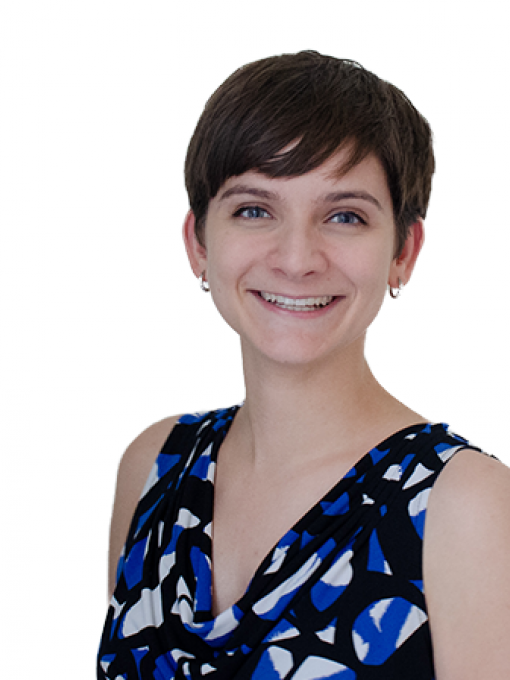We are living in a time of deep division. Stories about extreme political polarization in the United States and endless updates and opinions (both credible and not) flood our newsfeeds daily. Against this backdrop, the task of healing these divides seems daunting.
What if, rather than struggling to find common ground, we approached this work with an understanding that common ground already exists?
What if, rather than struggling to find common ground, we approached this work with an understanding that common ground already exists? What if we begin with what unites us?
We’re not talking about the absence of difference but the opposite of division. Centering what we have in common is a radical acknowledgment of our humanity that rises above our instinct to divide. This is the energy FCNL brings to its advocacy for peace, justice, opportunity, and environmental stewardship.
If the term “bipartisan” assumes some perfect middle ground between our country’s two parties, being nonpartisan in our advocacy means we are true to our values and the changes we want to see in the world.
FCNL’s nonpartisan approach is a commitment to listening deeply, connecting over shared values, and taking practical steps forward together toward the world we seek. It is a commitment to seeing that of God in everyone, including members of Congress. We believe it is the way to sustain a just and resilient democracy.
Why do we think this approach can bring us closer to the world we seek?
Acknowledging different viewpoints and opinions while respecting the messenger is a Quaker tradition. We strive to disagree authentically, advocate persistently, and approach legislators believing common ground exists.
We strive to disagree authentically, advocate persistently, and approach legislators believing common ground exists.
Over the years, FCNL and our network of advocates have helped pass legislation based on common causes and values, often working with unexpected allies. Passing the Elie Wiesel Genocide and Atrocities Prevention Act (Public Law 115 – 441), a landmark piece of legislation that requires the U.S. government to work to prevent violent conflict proactively, was only possible with strong bipartisan leadership in the Senate.
FCNL advocates also encouraged bipartisan collaboration to pass the First Step Act (Public Law 115-39), which reduced mandatory minimum sentencing and supported reentry programs.
As an organization with a history of relationship building, deep listening, and principled compromise, FCNL feels called to step more intentionally into the work of bridging today’s political divides. And we are not alone. FCNL has been consulting with practiced organizations like the One America Movement, Braver Angels, Faiths United to Save Democracy, Essential Partners, and others working in the democracy-building and dialogue space for years.
Why now?
Amid numerous domestic and global catastrophes, the coming election year, and a range of hot-button issues, we all need our voices to be heard by our lawmakers. Many people feel that their elected officials are not doing what they were elected to do and worry that they are contributing to the discord we see throughout the country.
Discord plus despair over ineffectiveness and inefficiency in Washington can lead to disengagement with the political process altogether—a dangerous equation for our fragile democracy.
Discord plus despair over ineffectiveness and inefficiency in Washington can lead to disengagement with the political process altogether—a dangerous equation for our fragile democracy.
It is time to change course. The urgency of addressing deep political and ideological divides and policy challenges calls us to act now. Spirit leads us to invite in people of diverse ideological backgrounds and be a transformative force for facilitating the type of engagement that will strengthen our democracy.
A strong democracy is a just and resilient democracy where differences are not erased but respected, and the voices being ignored in Washington today feel a real sense of inclusion tomorrow. This vision grounds FCNL’s outreach right now.
What’s next?
Quakers have been influencing government and civil society for as long as there have been Friends. Beyond that foundational history, we engage in this work because justice calls us.
FCNL is excited to work with local communities and Congress to expand collaborative policymaking. These efforts are already underway, as our staff is actively engaging in local policy listening tours with ideologically diverse community leaders and organizations to build bipartisan connections and identify policy positions that resonate across social and political divides.
We believe that people across the country want to see a government and Congress that work for the people and that this prophetic vision is attainable.
With this trust-building as a foundation, FCNL will also host local nonpartisan policy events and dialogues on critical issues. We hope to empower local communities to bring these areas of consensus on critical issues to their legislators, showing a clear roadmap for principled cross-partisan compromise on the Hill.
We will complement these efforts by convening members of Congress and their staff at FCNL’s Quaker Welcome Center to foster bipartisan collaboration on the issues explored during the listening tours to translate local perspectives into common ground policy change.
We know there is a long road ahead to heal these deep and persistent divides. However, we are committed to this work because we believe that people across the country want to see a government and Congress that work for the people and that this prophetic vision is attainable.


